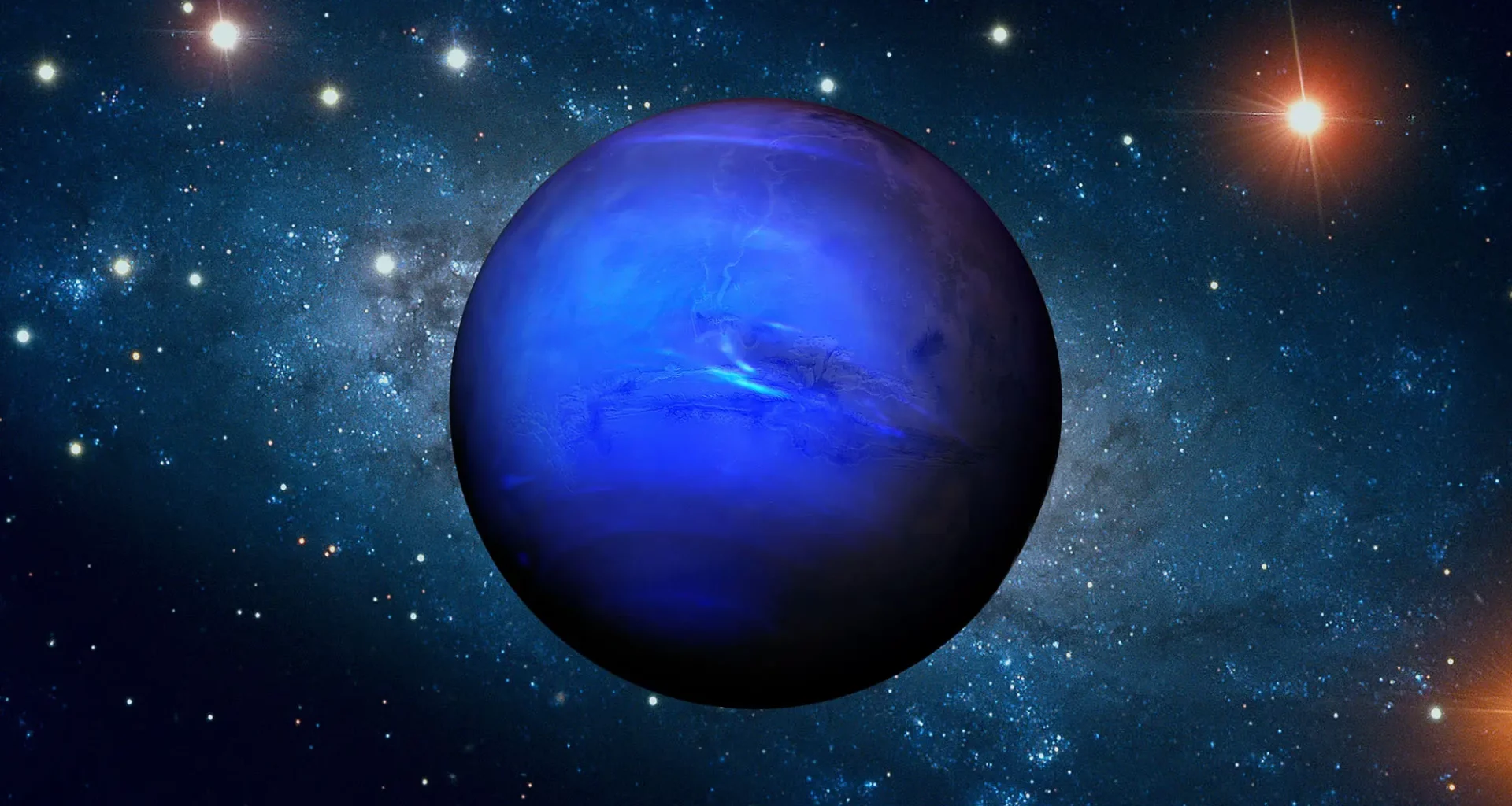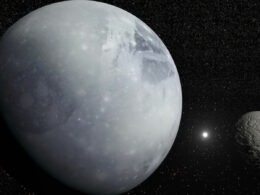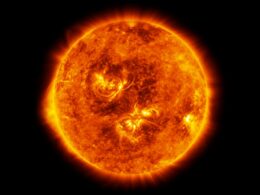Neptune is the eighth planet from the sun and the farthest known planet in our solar system. It’s a gas giant with a diameter of 49,244 kilometers, almost four times that of Earth. Neptune’s atmosphere is composed mainly of hydrogen and helium, with traces of methane that give it its blue color. The planet’s rotation is one of the fastest in the solar system, with one day on Neptune lasting only 16.11 Earth hours.
Understanding how long a day is on Neptune is crucial for scientists studying the planet. The rotation period of a planet is the time it takes for the planet to complete one full rotation on its axis. In the case of Neptune, the planet rotates much faster than Earth, with a day on Neptune lasting only 16.11 hours. This fast rotation causes the planet to bulge at its equator and flatten at its poles, making it an oblate spheroid.
Neptune’s Rotation and Day Length
How long is a day on Neptune?
Neptune is the eighth planet from the Sun and rotates on its axis, just like Earth. However, Neptune’s rotation is significantly different from that of Earth. A day on Neptune is only about 16 Earth hours long, making it one of the shortest in the solar system.
Comparison to Earth’s Day
Neptune’s fast rotation means that its day is much shorter than Earth’s day. However, it is important to note that a solar day, or the time it takes for a planet to complete one full rotation relative to the Sun, is different from the planet’s sidereal day, or the time it takes for a planet to complete one full rotation relative to the stars. For Earth, the solar day is 24 hours, while the sidereal day is about 23 hours and 56 minutes.
On the other hand, Neptune’s sidereal day is about 16 hours, while its solar day is about 18 hours. This is because Neptune’s orbit around the Sun is much longer than Earth’s, taking about 165 Earth years to complete one orbit. As a result, Neptune’s rotation is influenced by the gravitational pull of the Sun and its moons, causing it to have a slightly longer solar day than sidereal day.
How long is a year on Neptune?
A year on Neptune takes 165 Earth years to complete (60,190 Earth days).
Astronomical Observations and Discoveries
Voyager 2 and Hubble Contributions
Neptune, the eighth planet from the sun, is a giant ice planet with a unique and mysterious atmosphere. The planet’s day is one of the shortest in the solar system, lasting only 16.11 Earth hours. This discovery was made possible by the Voyager 2 spacecraft, which flew by Neptune in 1989 and collected data on the planet’s rotation. The Hubble Space Telescope has also contributed to our understanding of Neptune’s day length by observing the planet’s cloud patterns.
Atmospheric and Magnetic Peculiarities
Neptune’s atmosphere is composed mainly of hydrogen, helium, and methane, which gives the planet its distinctive blue color. The planet’s atmosphere also contains strong winds that can reach speeds of up to 1,500 miles per hour, the fastest in the solar system. These winds are thought to be driven by the planet’s internal heat and the rotation of its magnetic field.
Neptune’s magnetic field is also unique, as it is tilted at an angle of 47 degrees relative to the planet’s rotation axis. This tilt creates a “magnetic anomaly” at the planet’s equator, which is thought to be responsible for the planet’s unusually strong magnetic field. The magnetic field also interacts with the planet’s moons, creating auroras and other interesting phenomena.
Frequently Asked Questions
What is the rotational period of Neptune?
Neptune rotates on its axis once every 16 hours and 6 minutes. This makes Neptune the third fastest rotating planet in our solar system, after Jupiter and Saturn.
How does Neptune’s day length compare to Earth’s?
Neptune’s day length is significantly shorter than Earth’s day length. A day on Neptune lasts only 16 hours, while a day on Earth lasts 24 hours. This means that a day on Neptune is about 0.67 Earth days long.
Why does Neptune have a shorter day than Earth?
Neptune has a shorter day than Earth because it rotates faster than Earth. The faster a planet rotates, the shorter its day length will be.
What planet in our solar system has the longest day?
Venus has the longest day of any planet in our solar system. A day on Venus lasts 243 Earth days.
Can the day length on Neptune vary?
The day length on Neptune can vary slightly due to changes in the planet’s atmosphere. However, these variations are relatively small and do not significantly affect the overall length of a day on Neptune.
How does the length of a day on Neptune contrast with that on Uranus?
The length of a day on Neptune is similar to that on Uranus. Uranus rotates once every 17 hours and 14 minutes, making it the fifth fastest rotating planet in our solar system.





